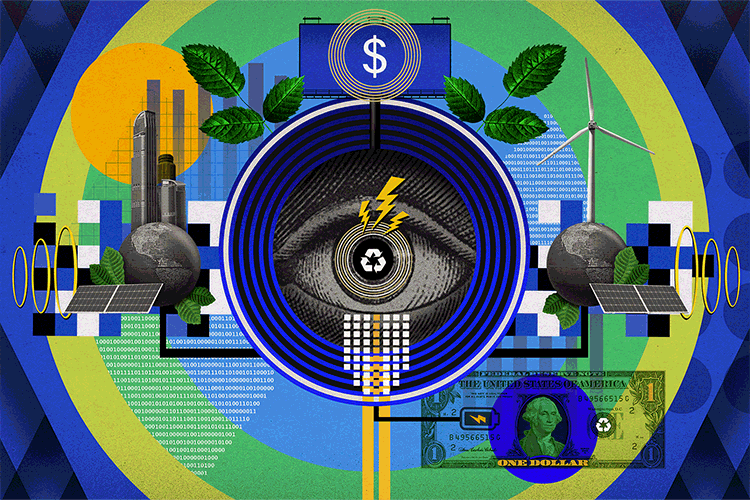Just by opening social networks, visiting some online or physical stores, and even turning on the television or radio, you can find advertising that announces some sustainable product that apparently doesn’t harm the environment.
Tec de Monterrey researcher José Carlos Vázquez Parra makes the previous affirmation, pointing out that greenwashing consists of disseminating environmentally positive information to create an eco-friendly image toward consumers.
This type of advertising can include misleading packaging or false labeling, according to the paper “Greenwashing. A risky bet for the positioning of a green brand”, published by Vázquez Parra, in 2020.
Indifference vs greenwashing
The Starbucks story is referred to in the Vázquez Parra paper. The company stopped using straws in its coffee shops at the time a video showing the suffering of a sea turtle having a straw pulled out of its nose went viral.
Starbucks stopped providing plastic straws on the grounds that it was joining an environmental initiative to protect marine fauna. However, the lids used to replace the straw contained a greater amount of plastic, explains Vazquez Parra investigation.
Ana Sofia Gonzalez, also a Tec researcher, explains together with Vazquez Parra that greenwashing has been a practice for at least three decades, but consumers seem to be paying more attention to it now.
Furthermore, in a 2015 study conducted by Tec researchers on ecological behaviors, only 15% of Mexicans are interested in recycling or buying eco-friendly products while 22% of Mexicans show indifference towards the eco tendency.
Other figures indicate that 97% of Americans in 2011 believed that they knew the concept of a green product, but 41% of them thought that eco-friendly products had a positive impact on the environment and were unaware that the product actually has a lower negative environmental impact than other similar products.
Vazquez and Gonzalez warn that companies that advertise through greenwashing and are discovered can fall into a scandal damaging their image and public relations.
To lie or not to lie?
The German car manufacturer Volkswagen is also mentioned in the Vazquez and Gonzalez study. The company was found to be using software that provided false information regarding the number of polluting emissions from its diesel vehicles.
After being discovered, the company was fined up to 18,000 million dollars.
Another example is the beauty products company Nivea, which launched an advertising campaign against chemicals in skin care products. However, in 2015 the environmental organization BUND pointed out that 38 of its products contained microplastics that affect the environment and skin.
Greenwashing occurs not only in the labeling or content of products or services but also in promoting an image of support for the environment.
Researchers from the University of Girona have analyzed the practices of those companies that seek alliances with universities and civic organizations to present themselves as environmentally responsible firms.
In 2022, Greenpeace and Harvard University analyzed the content of 2,325 social media posts of 22 fossil fuel companies in the European Union. Their results showed that companies only talk about climate change 0.3% of the time and instead dedicate 60% of their social media content to promoting a narrative of ecological innovation.
Fighting greenwashing
Although greenwashing exists, it does not always result from secret meetings or corporate plans with economic interests in mind.
Even some products may be environmentally friendly in the short term but dangerous in the long term, and some people question whether they should be considered “green products” or not.
There are various strategies that can help against greenwashing, and product labeling is one of them.
In Mexico, the Ministry of the Environment and Natural Resources has implemented a label for sustainable consumption in food, energy, and companies, among other products and services.
This type of labeling seeks to support informed consumer decisions and promote the generation of environmentally and socially responsible products and services.














